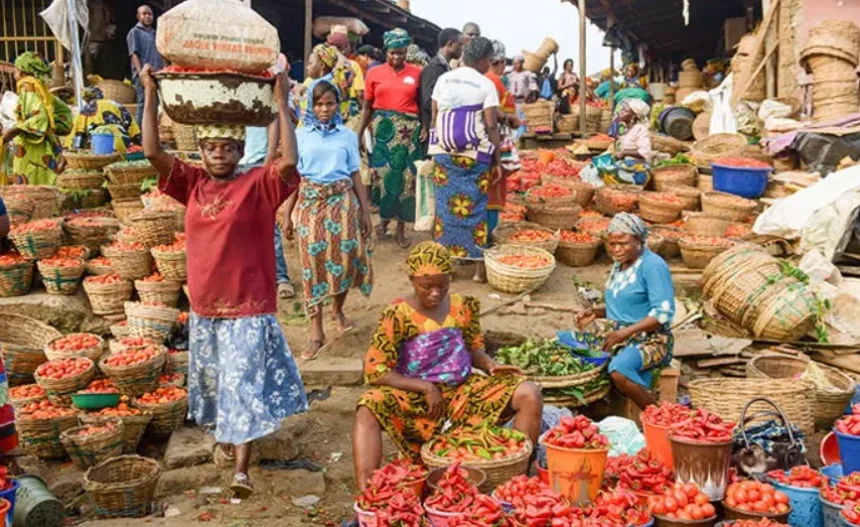The average cost of farm produce in Nigeria has surged by nearly 29% between January and May 2025, according to fresh data released by the National Bureau of Statistics (NBS).
This sharp rise, which pushed the farm produce price index from 110.5 in January to 142.53 in May, signals growing distress in the agricultural sector and worsening pressure on food affordability across the country.
While the price index crept up gradually in the first few months of the year, it spiked dramatically in May. January to February saw a mild 1.77% increase, followed by a 2.65% rise in March. April’s growth slowed to 0.88%. But in a sudden and alarming jump, May recorded a 22.28% increase, exposing the deep cracks in Nigeria’s food supply chain.

Analysts blame the crisis on widespread insecurity that has disrupted farming in many rural areas, especially in Benue State, the country’s main food-producing belt. Ongoing violence in these communities has made cultivation and distribution risky or impossible.
NBS figures reveal that food inflation in Benue had soared to 51.8% year-on-year by April 2025, while month-on-month food prices rose by 25.6%. Overall inflation in the state also jumped to 34.3% during the same period. By May, however, food inflation in Benue appeared to cool significantly, dropping to 22%. Still, month-on-month food prices edged up again by 4.1%, proving that the relief may be short-lived amid continued instability.
Despite the volatility in local farm produce, imported food prices have shown more stability. The Imported Food Price Index moved from 111.5 in January to 113.4 in February—a 1.3% increase. March saw a smaller rise of 0.44%, followed by a 1.23% increase in April. But by May, the trend reversed slightly as the index slipped to 113.7—a 1.39% drop.
Between January and March 2025, Nigerians spent ₦1.67 trillion on imported food and beverages, slightly higher than the ₦1.59 trillion recorded in the same period of 2024. The marginal increase of 5% shows that, in spite of the high cost of imports, many still rely on foreign food to bridge the gap created by domestic production shortfalls.
The latest figures paint a worrying picture for food security in Nigeria. As insecurity hampers farming and inflation tightens its grip, millions of Nigerians are feeling the pinch at the market facing higher prices for even the most basic staples.



